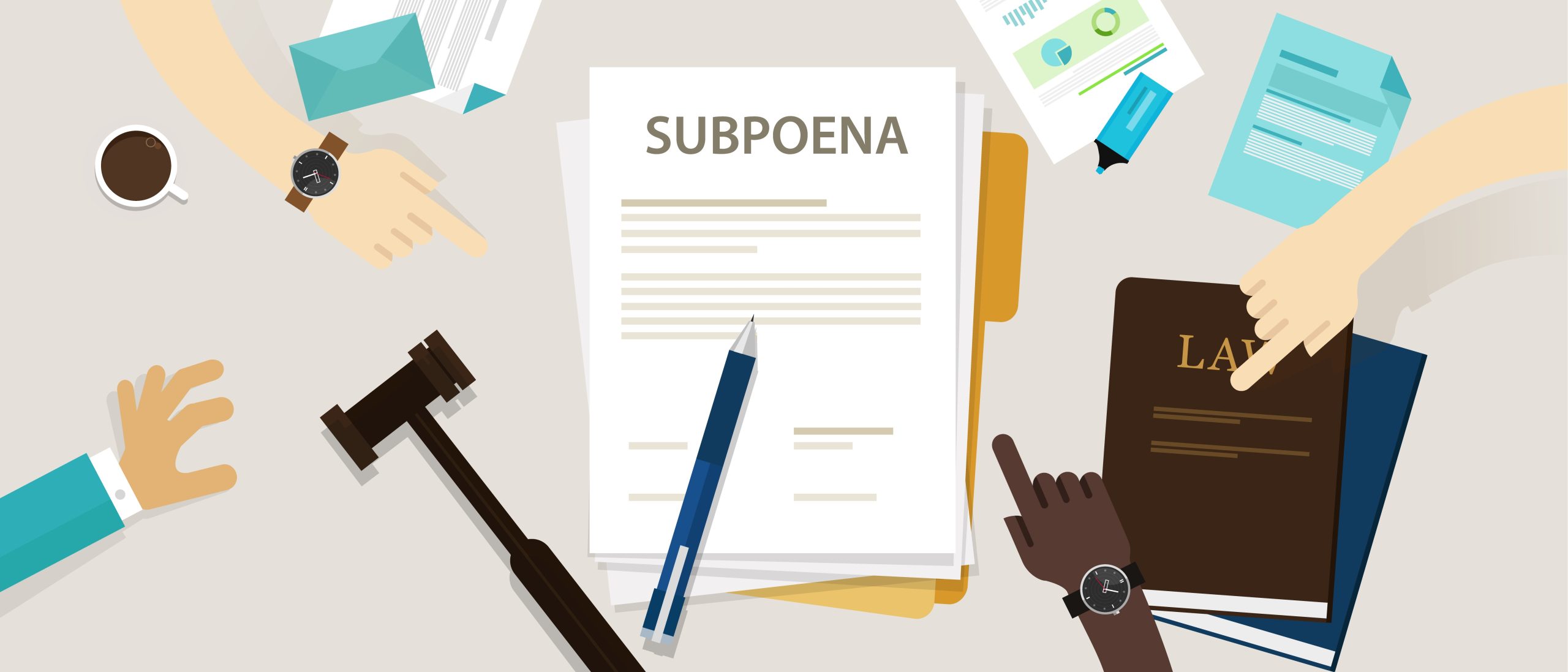
What Are The Main Types Of Subpoenas?
When one party in a case wants to obtain documents or request testimony, they may attempt to do so by sending a subpoena. The two primary forms of subpoenas include:
- Information Subpoenas: The average personal injury accident case or medical malpractice lawsuit typically involves various types of supporting evidence, such as accident reports, medical records, employment documentation, financial records, police reports, maintenance logbooks, repair records, security camera footage, and accident photos. Sometimes, the individual or entity that retains these documents is unwilling to provide them. Say a surveillance video captured your slip and fall accident. Still, the property owner refuses to comply with your request for the videotape. Your injury lawyer could use a subpoena to require the owner to produce the applicable footage.
- Witness Subpoenas: This type of subpoena orders the named person to appear in court. Witness subpoenas are primarily used when you want a 3rd party to be deposed or testify at trial. For example, if you were the victim of a T-bone collision at an intersection and a biker who witnessed the accident has been hesitant to reveal what he saw. In this situation, your attorney could subpoena the biker to compel him to testify.
How Are Subpoenas Served?
Both the plaintiff and defendant are allowed to apply for subpoenas with the Clerk of the Court up until 48 hours before their trial date. Except when otherwise stated in the New York Civil Practice Law and Rules (CPLR), a subpoena is served in the same manner as a summons and complaint. The subpoenaing party must arrange for service of the subpoena and a $15 witness fee. The subpoena can be served by anyone at least 18 years old as long as they are not a party to the action.
Proper subpoenas include provisions explicitly stating that failure to comply with the demands within the allocated time will be punishable as contempt of court. The person or business served with a subpoena that requests documents is typically required to answer within 7 days of receiving it. Failing to respond to any subpoena, absent a lawful excuse, can subject that party to a fine of $150.00 and all damages related to the failure to comply.
The Dietrich Law Firm P.C.’s elite personal injury lawyers want to ensure that our clients are adequately informed throughout every step of their cases. Our attorneys know what is necessary to obtain the best possible result for your case. If you want to be represented by Western New York’s finest litigator, be sure to get in touch with Jed Dietrich, Esq., as soon as possible. We are available 24/7 by dialing 716-839-3939 or filling out our online consultation form.
